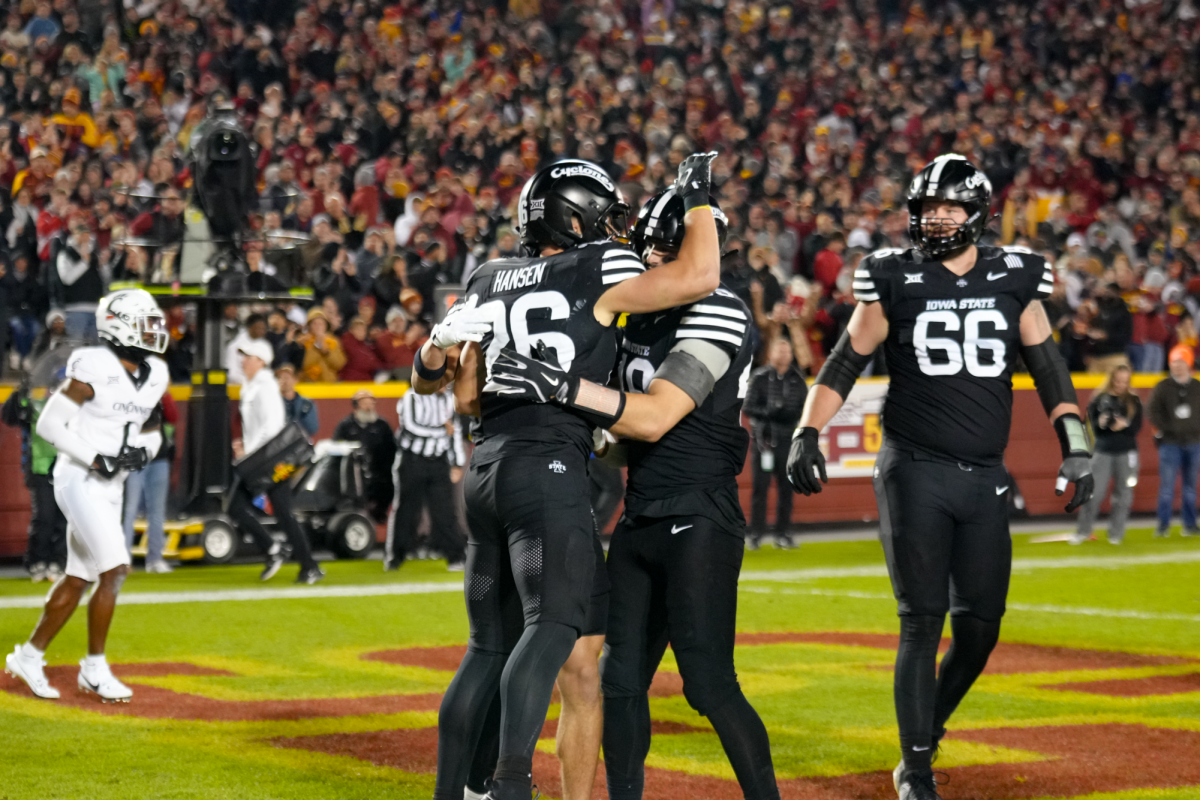Iowa’s personal issues may cost us the caucus
March 23, 2000
Well, it all looked exciting for a few weeks in February and the beginning of March, but in the end, the primary season was just as predictable and money-driven as it has been the past two decades.
Despite all the media chatter about “new politics,” the nation still ended up with the same two Ny-Quill candidates. Excuse me sir, did you just listen to the Vice President’s stump speech? I’m sorry, you can’t legally operate heavy machinery for about six hours.
The only question left is, “What have we learned?” I guess there’s the secondary question of, “Who will be our next president?” But since we won’t have to worry about that for a good eight months, let’s concentrate on the former, eh?
I guess the obvious lesson, which seemingly needs to be re-taught every campaign, is that taking the high road doesn’t work because there is no high road in politics. A candidate who says he is going to take the political “high road” is akin to a professional wrestler who says he plans to take the “high road” to win the intercontinental belt.
There is no noble path to take in politics because it is not a noble profession and hasn’t been for at least as long as recent memory serves.
To run for president, a candidate has to be willing to completely throw out every personal conviction, every private element of his or her life and be prepared to have derogatory comments made about high school cafeteria food in the 10th grade taken out of context and used in national TV ads.
A successful presidential candidate has to turn himself over to his handlers without appearing to be handled. He has to be willing to sleep three hours a night and look like he’s ready for a diplomatic dinner at 6 a.m.
Unless, of course, today is another meet and greet at some random greasy spoon. In that case, a candidate has to appear that he could be at a diplomatic dinner, but instead he shirked several world leaders to don flannel and talk with Joe and Ted about why they don’t trust “dem poe-little-cul tipes” anymore. It’s a brutal profession not suited for the weak of heart.
Bill Bradley didn’t want to play the game of “who loves God more” and refused to point out early on that Vice President Al Gore was speaking strictly from his ass on a variety of issues, including campaign finance reform. By the time Bradley realized that the high road led directly to the cliff of also-rans, it was too late because his attacks on the overly-established Gore were perceived as the flailing punches of a man who was on his last legs.
On the GOP side, the golden boy, Dubya, was never seriously challenged by John McCain. Sure, it looked there for a while like McCain might be able to crack Dubya’s wall of influence, moola and smirking, but in the end, McCain extended the high road a little bit too far.
The all-access, all-the-time McCain just couldn’t keep dancing that fine line between making everyone believe he had nothing to hide and hiding all those frailties that needed to be hidden.
After watching so many movies depicting Vietnam vets as angry, flashback-prone damaged goods (certainly an unfair stereotype), I find it no surprise that McCain’s compelling life story in the end came back to haunt him. (You still call them what?)
But the death of the McCain phenomenon might not just mean the decommissioning of the Straight Talk Express. It could hold dire consequences for the primary system as we know it. Specifically, don’t be too surprised if Iowa’s stranglehold on the first-in-the-nation caucus status goes by the wayside in 2004.
In a year when the presidential candidates for both major parties were secured faster than a seatbelt in Ted Kennedy’s car, a total of 17 states were left with no say whatsoever in who they will get to vote for in November. Many of those states, such as Indiana, Illinois and South Dakota, are of the Midwestern variety, just like ours.
And with Dubya’s main competitor skipping Iowa this year, it proves that the Jimmy Carter rule is not always true — Iowa’s caucus is not such an important contest after all.
So, where does that leave Iowa officials who have fought other states, such as Louisiana, to the death to keep the first caucus of the season in the Cyclone state?
Well, it leaves them hanging high and dry for the most part. How can a rational person argue that our state deserves that much national influence when it insists on making regional issues, such as ethanol and agriculture, bellwether topics for candidates who will completely ignore those issues as soon as they catch the last flight out of Des Moines?
Don’t be surprised if Iowa and its enigmatic caucus has seen the glaring light of the media sun for the last time. And enjoy what will surely be the most painfully long presidential campaign in U.S. history.
David Roepke is a junior in journalism and mass communication from Aurora. He is a news editor at the Daily.






